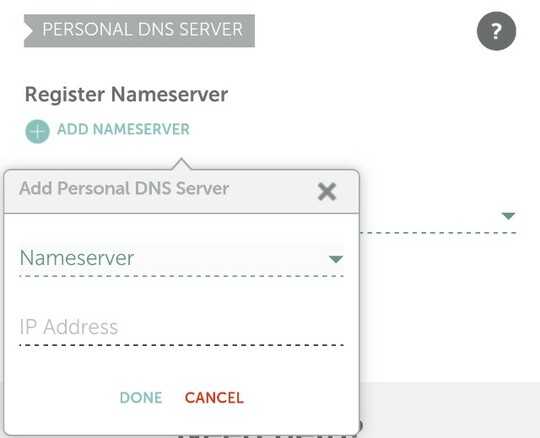2
Looking at the name www.google.com:
- The root DNS servers tell you that
comis managed by{a,b,c,d,e,f,g,h,i,j,k,l,m}.gtld-servers.net. a.gtld-servers.nettell you thatgoogle.comis managed byns{1,2,3,4}.google.com.ns1.google.comtells you it's authoritative forgoogle.comand tells you whatwwwis.
Looking at the name www.namecheap.com:
- The root DNS servers tell you that
comis managed by{a,b,c,d,e,f,g,h,i,j,k,l,m}.gtld-servers.net. a.gtld-servers.nettell you thatnamecheap.comis managed bya{1,2,3}.verisigndns.com.a1.verisigndns.com.tells you it's authoritative fornamecheap.comand tells you whatwwwis.
There's a distinct difference between these two strategies. In the case of Google, the com DNS servers give an additional info section containing the address of ns{1,2,3,4}.google.com. Without that hint it'd be impossible to finish resolving as to find ns1.google.com you'd need to ask ns1.google.com. I've heard these referred to as "glue records".
When I look at the management portal for a domain registered via Namecheap there's no way for me to input these glue records. I'd have to buy a whole other domain (and let Namecheap manage DNS for it) solely so I could use it to manage the DNS for the first domain.
Is Google's way or Namecheap's way the "canonical" strategy? Are there reasons why one organization would chose to do it one way or the other? Is there an official term for these "glue records"?

Sure they allow this. I'd be very surprised if a registrar didn't. https://www.namecheap.com/support/knowledgebase/article.aspx/768/10/how-do-i-register-personal-nameservers-for-my-domain
– user1686 – 2018-01-22T04:59:57.057Your list of steps is slightly wrong: without QNAME minimization, at each step, each authoritative nameserver gets queried for the full name, and it defines itself where the zone cut is and what it should reply. And the official public name of glue records is indeed glue records, and the official technical term is "in-bailiwick nameservers". – Patrick Mevzek – 2018-05-01T15:44:47.913